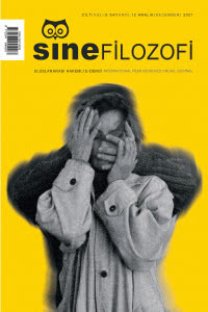Yitik Olan Ne? Gone Baby Gone’da Ahlaki İkilem, Ahlaki Seçim ve Ahlaki Eylem
Dennis Lehane’in romanından uyarlanan Gone Baby Gone (Ben Affleck, 2007) filmi, her ne kadar yüzeyde “iyi suçlu”nun ortaya çıkarılmasıyla gizemin beklenmedik bir şekilde çözüldüğü bir dedektif filmi olsa da temelde doğru seçim ve eylem hakkında ahlaki bir sorgulama üzerine kurulmuştur. Ahlaki bir ikilem söz konusu olduğunda ahlaki seçim yapma zorunluluğu, seyirciyi de her birinin geçerliliğini sorgulamaya davet eden, karakterlerin birbirleriyle çatışan ahlaki tutumları ile sonuçlanır. Filmde, karakterler tarafından yapılması gereken temel ahlaki seçim, kaçırılmış küçük bir kızı sorumsuz ve uyuşturucu kullanan annesine geri vermek ya da onun, kendisini kaçıran, fakat ona parlak bir gelecek vaat eden, saygıdeğer bir baş komiserde kalmasına ses çıkarmamaktır. Sorun, karakterler iki zıt kutup olan ahlaki mutlakçılıktan ahlaki göreceliğe, ve bu ikisinin arasında ılıman bir meltem olarak kabul edilebilecek ahlaki nesnelliğe çeşitlenen ve birbirleriyle çatışan ahlaki tutumlar benimsedikleri zaman daha da sorunsal hale gelir. Bu bağlamda, filmde seyirciye de sirayet eden ahlaki ikilemler aslında felsefe tarihinin tartışmakta olduğu farklı ahlaki görüşleri karakterlerin kararları üzerinden vermektedir. Gone Baby Gone filmini ahlaki ikilem, görecelik ve seçim bağlamında irdeleyen bu çalışma, seçim ile arkada bırakılmış eylemin ya da seçilmediği için gerçekleşmemiş ahlaki olasılıkların, yani “yitik” olanın, ahlak felsefesi bağlamında izini sürmeyi amaçlamaktadır.
What is Gone? Moral Dilemma, Moral Choice and Moral Act in Gone Baby Gone
The film adaptation of Dennis Lehane’s novel Gone Baby Gone (Ben Affleck, 2007) is based on a moral questioning about right choice and right act although, on the surface, it appears as a detective film in which the mystery is unexpectedly uncovered by discovering the “good criminal”. The obligation to make a moral choice in case of a moral dilemma results in the conflicted moral attitudes of the characters, which invites the spectator to question the validity of each. In the film, the basic moral choice that should be made by the characters is whether to take an abducted little girl back to her careless, and also drug user mother, or to let her stay with her abductor, but a respectful police captain who grants a promising future for her. The matter becomes much more problematic when the characters adopt contradictory moral attitudes varying from moral absolutism to moral subjectivism, two opposite poles, and also including moral objectivism, which could be accepted as a moderate breeze between them. In this sense, this study examines how moral dilemmas, exercising their influence over the spectator as well, reveal various moral attitudes that have been essentially discussed in the history of philosophy on the basis of the choices made by the characters. The study, analyzing Gone Baby Gone in terms of moral dilemma, choice and act, aims to trace what is gone –namely what is left behind by the choice, or the moral would-be possibilities as they were not chosen– within the context of moral philosophy.
___
- Atherton, Matthew C., (2010). “Film Review: Gone Baby Gone”, 13(1): 125-127.
- Bailey, S. (Producer), & Affleck, Ben. (Director). (2007). Gone Baby Gone [Motion Picture]. USA: Miramax.
- Cumbow, Robert C., (2009). “There Will Be Choice: Why Gone Baby Gone is the Best Film of 2007, Essays: Film Reviews. Retrieved September, 25, 2019 from, http://parallax-view.org/2009/01/05/there-will-be-choice-why-gone-baby-gone-is-the-best-film-of-2007/
- Garcia-Mainar, Luis M, (2013). “Space and the Amateur Detective in Contemporary Hollywood Crime Film”, Journal of Film and Video, 65(3): 14-25.
- Kant, Immanuel, (1976). “On a Supposed Right to Lie from Altruistic Motives (1797)”, Critique of Practical Reason and Other Writings in Moral Philosophy (Ed. Lewis Beck White). New York&London: Garland Press.
- Kant, Immanuel, (2006). Groundwork of the Metaphysics of Morals, trans. Mary Gregor, Cambridge&New York: Cambridge UP.
- Krzych, Scott, (2017). “ ‘The Things You Don’t Choose’: Ethics, Singularity, and Gone Baby Gone (2007)”, Discourse Studies in the Cultural Politics of Education, 39(1): 117-139.
- Lehane, Dennis, (1998). Gone, Baby, Gone. London: Sphere. Hachette Digital. Retrieved August, 28, 2019, from https://books.google.com.tr/books?id=y2TTRTyB11AC
- Moore, Paul. (2017). “Ten Years Later and People are still arguing about the Controversial Ending to This Suberb Film”. Retrieved August, 2, 2019, from https://www.joe.ie/movies-tv/10-years-later-and-people-are-still-arguing-about-the-controversial-ending-to-this-superb-film-604195
- Yayın Aralığı: Yılda 2 Sayı
- Başlangıç: 2016
- Yayıncı: Serdar Öztürk
Sayıdaki Diğer Makaleler
Güzel Sanatlarin Birer Dalı Olarak Cinayet ve İmgelerarasılık: The House That Jack Built Örneği
Şükrü AYDIN, Emine Uçar İlbuğa
BEN “O”YUM Tayfun Pirselimoğlu Sinemasında Arzu Üçgeni
Yitik Olan Ne? Gone Baby Gone’da Ahlaki İkilem, Ahlaki Seçim ve Ahlaki Eylem
2000 Sonrası Türk Sinemasında Ailenin Belleğine Yolculuk: Pandora’nın Kutusu ve Kelebekler Filmleri
